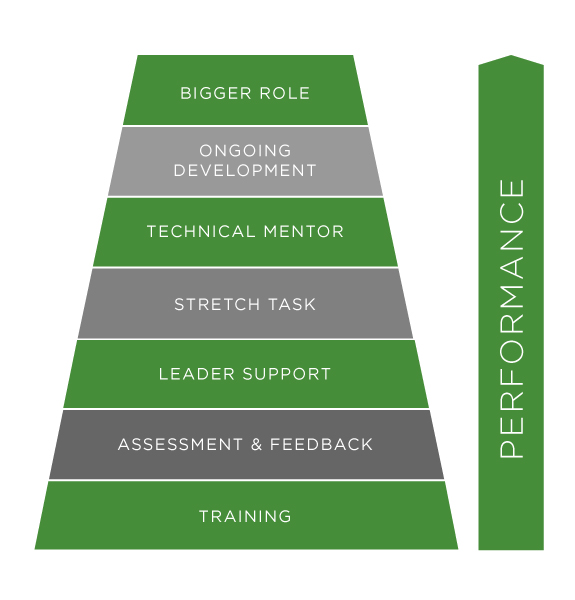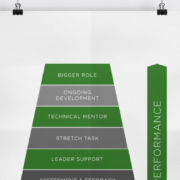Example Training Programme
Introduction
The team at MAP Training has experience of designing various length and style of programmes from one day up to three week programmes. The classroom elements of the programmes do not necessarily have to run concurrently – with the programmes able to be easily broken into discrete modules delivered over a period of time (e.g. one day a fortnight over a period of three months; five two day programmes over a period of six months, etc.)
All of our programmes are underpinned by practical class room sessions; this being the core deliverable to support our belief that people learn far more effectively through doing and applying knowledge to real life situations. These programmes are often complemented by distance learning activities – these can be pre and/or post classroom sessions.
Our programmes are typically designed to be delivered to between 12 and 24 delegates although we have run some programmes for up to 30 delegates. The following anonymised programme, provides more detail in how a programme would come together from initial concept to end product
Example training programme
What was the aim of the programme?
The client had established that there was a need to build a wider and deeper pool of talent to fill current and future senior roles in Commercial Liability underwriting. The programme needed to accelerate the development of advanced technical skills and capability to those who had the potential and ability to take on these senior roles within the next two to four years. A key objective of the programme was to provide delegates with exposure to client’s in-house experts from around the world.
The core principles of the programme
The programme had the following core principles to maximise its value to the client:
- It was centrally owned by the global team to ensure access to client’s best experts – wherever they were located
- There was a robust candidate application and selection process – the client wanted their best people to attend with the capability and capacity to absorb as much learning as possible from the programme (with a secondary goal of content being re-used over a longer timeframe for a wider audience)
- An assessment and feedback framework for delegates was provided. Delegates put considerable effort into these programmes, so the client wanted to ensure they were given feedback on how they had performed and direction on what they needed to do when they returned to their day job to progress
- There was a clear technical business owner for the programme – this was crucial for the programme’s success
- The leaders’ of the delegates were engaged early and this engagement was maintained pre and post programme.
- The programme designed had to be practical, case study based and focussed on learning through doing to maximise learning. Working with the technical leader and wider technical team, we made use of distance learning tools (e.g. on-line learning systems, facilitated webex sessions, etc.) to support delegate preparation and ongoing development of delegates post programme to ensure cost effectiveness of programme.
- The programme replicated real life scenarios for delegates but in a safe environment. If mistakes were made they cost the business nothing.
Scoping and designing the programme
We conducted a detailed scoping process involving key stakeholders to agree and map:
- The programme objectives & success factors
- Delivery mechanism & programme duration
- The content experts who would be involved in the design and delivery of the programme.
From this process it was agreed that the programme would consist of an up-front distance learning element and a number of items of pre-work as preparation for a two week class room based training programme. Our role in the design phase was then to:
- Work alongside the content experts to help them develop their content and provided them with a structure to deliver their content in the most effective way
- Ensure course material was developed in line with the content experts’ requirements
- Anonymise any real cases used during the programme as required
- Develop presentation and printed material in line with in-house brand requirements
- Support the programme logistics to ensure suitable facilities and equipment were arranged
Delegate Selection
We worked with the programme sponsor to:
- Assist with the delegate application and selection process – 24 delegates from across the world were selected
- Design and support delivery of a delegate and leader briefing webex. This is a key session as it allowed us and sponsor to:
- Share more information on how the programme was going to run
- Outline the roles and responsibilities of those involved in the programme
- Provide details of the pre-work requirements for the delegates to complete prior to attending the on-site element of the programme
Programme content
1. Pre-work
In conjunction with the programme sponsor and content experts, we developed a number of items of pre-work for delegates:
- Some pre-reading on topics where refresh of existing knowledge was required
- Four webex sessions to cover some other fundamentals to allow quicker immersion into the on-site programme content
- Four exercises for delegates to work on and submit prior to the on-site programme – two were relatively straightforward tasks and two were more challenging!
The pre-work submissions were formally assessed and reviewed to provide the programme technical leader with a better understanding of delegate capability prior to the start of the on-site programme.
2. On-site programme content
We targeted all of the content experts to develop sessions that would support our goal of having delegates ‘learning through doing’ for c. 70% of the programme. This was achieved with a combination of discussions, longer one to two hour exercises, half day and full day exercises. We worked with the technical leader to ensure delegates worked on some exercises on their own, and at other times in small groups of two to four people.
A few examples of some of these exercises included:
- Case referral – delegates prepared a case referral for review with a senior technical colleague (written and verbal exercise)
- File review – critique and evaluation of the quality of a real underwriting case file and compared to views of technical leader
- An all-day case to work through the various stages of underwriting from risk identification through to presenting the case to a broker
- A project for small groups to work on throughout the programme and presented to a senior panel during the second week.
Programme Delivery & Management
In addition to supporting the design and delivery of the programme, we were very active during the on-site element of the programme:
- On-site support to ensure all logistics were taken care of so all the experts needed to focus on was professional delivery and facilitation of their training session
- We were the primary contact point for all on-site delegate programme queries and supported them with feedback to help them maximise the value they got from the programme
- Gathered and analysed daily delegate feedback and input provided to course presenters and leaders to ensure prior days’ feedback was taken into account during their session as necessary.
- Supported the programme sponsor for the ongoing delegate evaluation and assessment process
- We wrote up individual delegate reports
Additional benefits beyond core technical learning
As we have found over many similar engagements, many technical experts are nervous or struggle with one or more of the variety of presentation/engagement situations they face in their roles, e.g. 1-1 case referrals with senior technical leader; 1-1 pitch with a broker/client; a formal pitch presentation to a broker and client; using limited time with a broker (or internal expert) to gather additional relevant information, etc.
In this programme, we aimed to replicate these situations for delegates and provided them with feedback to improve their performance. Providing this subtle presentation skills training during an intense technical programme not only provided a change in pace to assist in learning absorption, but also buy-in to the principles way beyond what was typically experienced at previous stand-alone presentations skills training programmes.
In addition to providing feedback to delegates, we supported those delivering parts of the programmes with their delivery capability and gave feedback after their sessions to help them improve their own effectiveness for future similar events.
Post programme activities to maximise value
- Delegate performance was shared with the delegates’ leaders.
- Delegates had a conversation with their leader about their experiences and then agreed an action and development plan
- We emphasised that training is just the start of a delegate’s development. Whilst our experience has shown delegates go back to their business with increased confidence and knowledge, this is not on its own sufficient to move them immediately up to the next bigger technical role. It is just the enabler to help them make that progress as part of a wider development pathway, summarised below.








Leave a Reply
Want to join the discussion?Feel free to contribute!